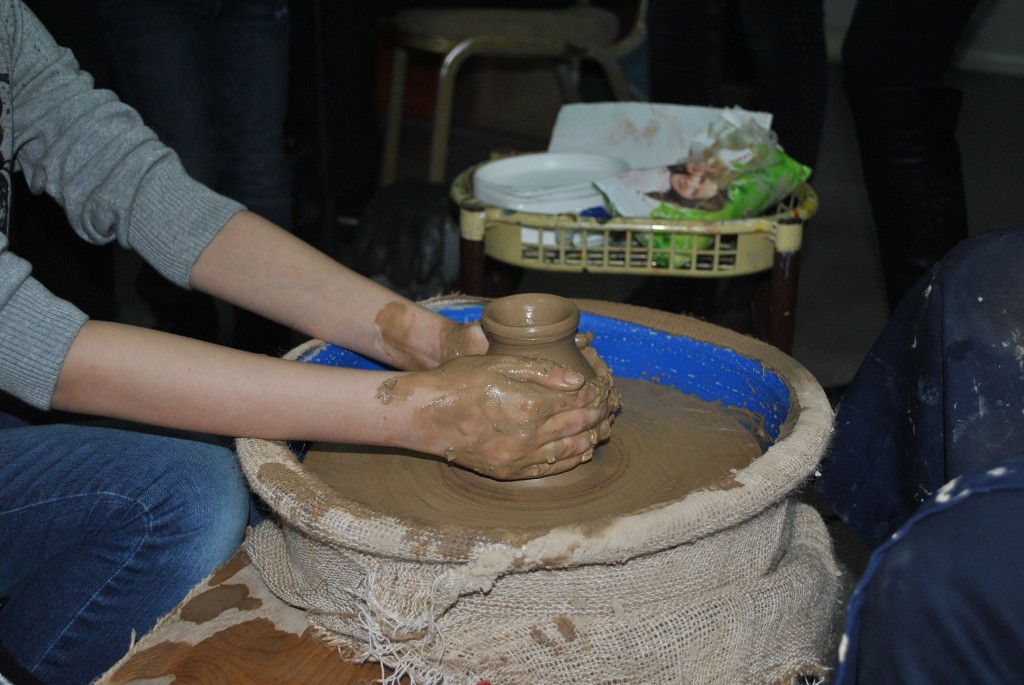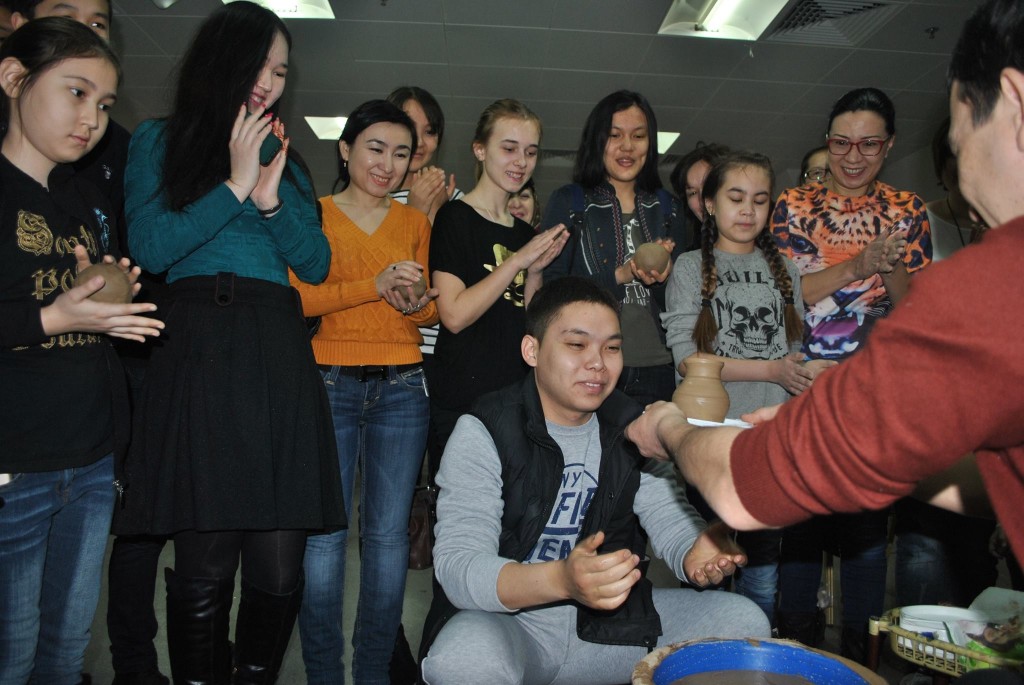The Kulanshi Modern Art Centre conducted master classes in pottery making and jewellery design March 25 during the Nauryz holidays. The free classes attracted more than 140 people.
Yerbolat Karabdal, the master behind the potter’s wheel who showcased the basics of his art to young children and working professionals, gave an interview to The Astana Times.
Please tell us about yourself. Where do you work? How long have you been making art?
I was born in a creative family. My mother and father taught me the secrets of clay since I was a little child. While the kids in the neighbourhood grew up in kindergartens, I was raised in my father’s studio.
An interesting thing is that my toys at the time were all handmade. Now that I think about it, that was the beginning of my journey. As I grew up, so did my creative abilities, and my parents wanted me to become a painter-designer. I, too, wanted to follow in my father’s footsteps.
When I was fully grown, I decided that I needed to study the field of law, something that the country needs. Today, I work in the General Attorney’s office, working in two fields at once.
What was the purpose of the master class?
The event took place in the Palace of Peace and Harmony during the holidays. The Kulanshi Modern Art Centre is located there and its director is the master painter Leyla Mahat. During the holidays, the centre invites residents and guests inAstana to try their hand in arts and holds master classes. For this Nauryz festival, the centre decided to hold master classes in two disciplines at once. The main goal of the event was to give the members of our society who spend most of their time in front of the computer the opportunity to hold clay in their hands, feel its natural texture, let their minds feel freedom and create something beautiful. There were a lot of parents who brought their children to this free master class. What was meant to be a three-hour seminar lasted well into the evening. The event proved that the ancient art of pottery is still in demand in modern times.
Another reason was to show that Kulanshi holds regular classes in pottery making and other fields of art.
What does one need to make art?
To make art, the most important things are talent and goals. When I place the clay on a potter’s wheel, I aim to create a different world. I try to add to the art of jar making, to develop it. I still remember when I made my first jug and created a piece I called “Otyrar and the Cosmos.” It still stands in the collection of my father, Kendebai Karabdal’s museum. The creation inspired me to make more other worlds. I learned that our forefathers used to make most everyday items out of clay and I wanted to learn the secrets of that technology. At first my planned ideas didn’t turn out, but as I studied more I learned different techniques. Today, we know that ceramic vases have seven natural colours. Ceramics are mainly fired at 1,200 degrees Celsius. I noticed ceramic heating ovens waste a lot of fuel, so my next goal was to improve the quality of the product by using less fuel. Over time, I have come up with an enhanced method. I think there are still a lot of secrets in the making of pitchers. What I know is only one grain.
What would you like to add?
Human physiology benefits from the calcium contained in clay. I think the Ministry of Education and Science should teach the art of pottery in school during labour classes with clay instead of plastiline so that the pupils would get their calcium necessary for bone hardening by kneading it with their palms. What’s more, they won’t be able to lose the skills they learn. Clay can prevent many children’s psycho-physiological diseases. For example, the palm of one’s hand has sensory connections to the eyes, ears, nose and other senses and working with this improve svision and hearing and the ability to think and create. Pottery making teaches people’s hands to listen. It forms a sense of love for the country, which is important in a child’s education. In addition, it is great to feel the earth one was born on.




